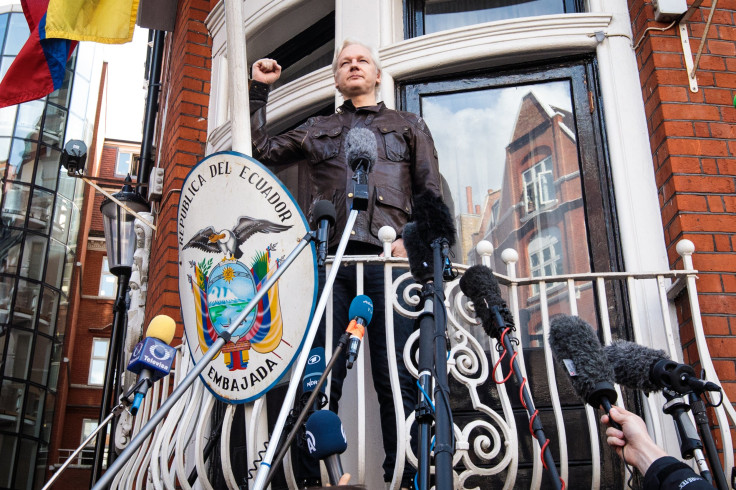WikiLeaks' Julian Assange Will Have To Eventually Leave Embassy, Ecuador President Says

Circumstances seem grim for WikiLeaks founder Julian Assange, who has been hiding in Ecuador’s embassy in London ever since he was accused of rape in Sweden in 2012.
Although he has refrained from stepping out of the secure building in Knightsbridge in London, Ecuador President Lenín Moreno said at an event in Madrid on Friday that Assange will have to leave the facility sometime in the future.
The recent report comes after the Sunday Times reported last month that senior officials from Ecuador and London discussed Assange’s case, even contemplating on the best way to remove him from the embassy after the revocation of his asylum.
A source close to Assange told Reuters things are not looking good for the Australian-born computer programmer.
Assange has refused to leave the embassy despite the fact that rape charge against him was dropped by the Sweden. This is because he is still wanted by the British police on breaching his bail conditions — something he tried fighting in the British court but lost, with the judge saying Assange felt he was “above the law.”
WikiLeaks founder admitted in the past what frightened him the most was the possibility of being extradited to the United States for interrogation over his leaking of government secrets, emails and CIA hacking tools. WikiLeaks has been accused of leaking classified documents obtained by Russian hackers, which influenced the outcome of 2016 election.
Assange’s lawyer Jennifer Robinson said the British government refused to confirm or deny whether there is an extradition request from the U.S., leading the founder of WikiLeaks to blame the country leaders of a “cover up” in order to detain him in the country.
Back in March, the government revoked Assange’s internet privileges inside the Ecuadorian embassy after he sent a tirade of tweets, where he commented about the arrest of a Catalan independentist politician and questioned Russia’s involvement in the poisoning of a Russian ex-spy and his daughter in England.
Although it was not clear exactly which tweet(s) made government officials make the decision of cutting off his internet connection, many of them reportedly violated “written commitment” made by Assange to the Ecuadorian government in which he promised not to attempt to meddle in the affairs of other countries.
“Assange’s behavior, with his messages through social networks, puts in danger the good relationships that [Ecuador] maintains with the United Kingdom, with the other countries in the European Union and other nations,” the Ecuadorian government said in a statement.
In response to cutting of his internet access, Assange’s supporters launched a social media campaign under the hashtag “ReconnectAssange” where they urged the government to reconsider their decision.
Moreno has previously branded Assange as a “hacker and an “inherited problem.” Although the Ecuadorian president assured Assange will be leaving the embassy, he had not mentioned any tentative date of that happening.
© Copyright IBTimes 2025. All rights reserved.






















